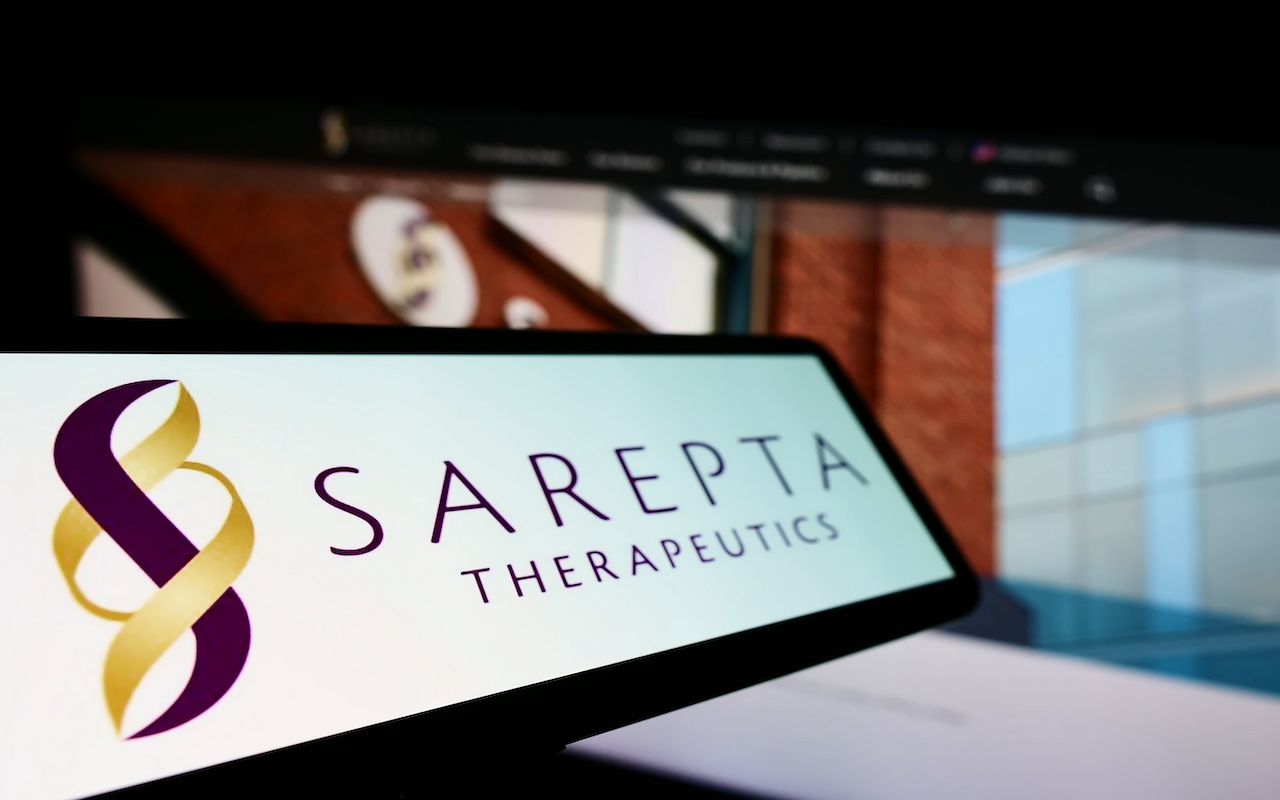- Center on Health Equity & Access
- Clinical
- Health Care Cost
- Health Care Delivery
- Insurance
- Policy
- Technology
- Value-Based Care
Sarepta Therapeutics Seeks to Expand Delandistrogene Moxeparvovec Indications
Delandistrogene moxeparvovec-rokl (Elevidys; Sarepta Therapeutics) is currently approved to treat Duchenne muscular dystrophy in 4- and 5-year-old patients who have a confirmed DMD gene mutation.
Sarepta Therapeutics Inc | Image Credit: Timon - stock.adobe.com

In late December, Sarepta Therapeutics initiated filings with the FDA to expand the labeled indications for delandistrogene moxeparvovec-rokl (Elevidys), which uses adeno-associated virus–based gene transfer therapy to spur production of the dystrophin protein.1,2 The gene therapy was approved by the FDA in June 2023 and is the first such agent indicated to treat a specific patient population with Duchenne muscular dystrophy (DMD): ambulatory patients aged 4 to 5 years with a confirmed DMD gene mutation.3 The expanded indication seeks to remove the age limit.
The DMD space has seen much success in the past few years, with the FDA also approving Sarepta’s eteplirsen (Exondys 51), golodirsen (Vyondys 53), and casimersen (Amondys 45), as well as NS Pharma’s viltolarsen (Viltepso) in the past 6 years alone.4
This newest application from Sarepta constitutes an efficacy supplement of its biologics license application and it is supported by data from 2 pivotal clinical studies: EMBARK (NCT05096221), a phase 3 multinational, randomized, double-blind, placebo-controlled trial, and ENDEAVOR (NCT04626674), a phase 1 open-label trial. A priority review of the supplement has been requested, as has that delandistrogene moxeparvovec’s current accelerated approval change to traditional approval based on Sarepta’s submission of the postmarketing reuirement for EMBARK.
Traditional approval means approval that is based on data showing a proven clinical benefit, whereas accelerated approval is for treatments meant to fill an unmet clinical need and is based on surrogate markers from earlier in the clinical trial process, therefore providing earlier access to potentially life-saving treatments.5,6 However, the accelerated approval process has received criticism in recent years for purported lower regulatory standards and lack of due diligence.7
Douglas S. Ingram, JD
Image Credit: Sarepta Therapeutics

“Consistent with our patient commitment, Sarepta moved rapidly to submit an efficacy supplement to the biologics license application for Elevidys seeking label expansion to remove age and ambulation restrictions from the approved indication,” said Doug Ingram, president and CEO, Sarepta Therapeutics, in a statement. “Understanding that Duchenne patients are in a race against time, we appreciate that the Agency also moved quickly to engage and provide us with guidance on the process for reviewing our BLA supplement.”1
DMD is a genetic disorder with root causes in spontaneous or genetic mutations in the DMD gene and the mother’s X chromosome. This mutation subsequently affects production of the dystrophin protein, an element crucial to preventing muscle fiber breakdown from enzyme exposure and enabling normal muscle recovery.8,9
Sarepta is collaborating with Roche, which is tasked with regulatory approvals for the gene treatment outside of the United States, to bring delandistrogene moxeparvovec to patients worldwide living with DMD.
References
- Sarepta Therapeutics submits efficacy supplement to expand the Elevidys label to include Duchenne muscular dystrophy patients without restriction to age or ambulatory status. News release. Sarepta Therapeutics. December 22, 2023. Accessed January 5, 2024. https://investorrelations.sarepta.com/news-releases/news-release-details/sarepta-therapeutics-submits-efficacy-supplement-expand-elevidys
- Elevidys. Prescribing information. Sarepta Therapeutics. Accessed January 5, 2024. https://www.fda.gov/media/169679/download#:~:text=ELEVIDYS%20is%20indicated%20for%20the,mutation%20in%20the%20DMD%20gene
- Caffrey M. FDA approves delandistrogene moxeparvovec, first gene therapy to treat Duchenne muscular dystrophy. The American Journal of Managed Care®. June 22, 2023. Accessed January 5, 2024. https://www.ajmc.com/view/fda-approves-delandistrogene-moxeparvovec-first-gene-therapy-to-treat-duchenne-muscular-dystrophy
- Muscular Dystrophy Association celebrates FDA approval of Sarepta Therapeutics' Elevidys for treatment of Duchenne muscular dystrophy. News release. Muscular Dystrophy Association. June 22, 2023. Accessed January 5, 2024. http://tinyurl.com/yjrsfpe6
- FDA's drug review process: continued. FDA. Updated August 24, 2015. Accessed January 5, 2024. http://tinyurl.com/26vcafun
- Accelerated approval: finding a path to get needed treatments to patients faster. Lilly, June 20, 2023. Accessed January 5, 2024. https://www.lilly.com/news/stories/accelerated-approval-get-needed-treatments-patients
- Beakes Read G, Neisser M, Frey P, Guarducci M. Analysis of FDA's accelerated approval program performance December 1992–December 2021. Ther Innov Regul Sci. 2022;56(5):698-703. doi:10.1007/s43441-022-00430-z
- Duchenne muscular dystrophy. Johns Hopkins Medicine. Accessed January 5, 2024. https://www.hopkinsmedicine.org/health/conditions-and-diseases/duchenne-muscular-dystrophy - :~:text=It is caused by a,down when exposed to enzymes
- Duchenne muscular dystrophy. Pfizer. Updated 2023. Accessed January 5, 2024. http://tinyurl.com/3udxrept
